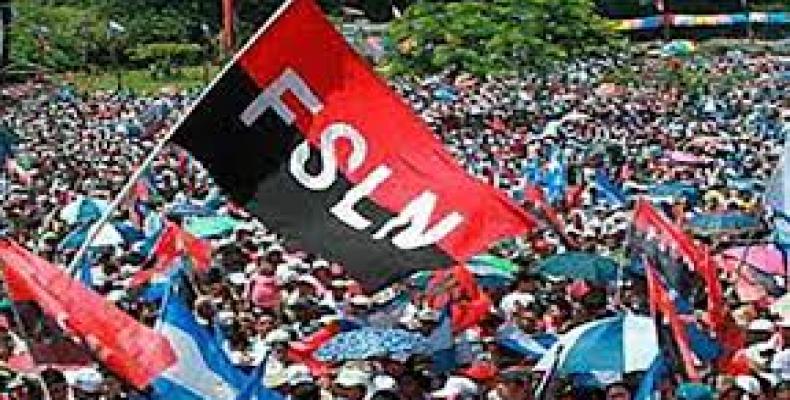Managua, August 21 (RHC)-- Authorities from the Nicaraguan Human Rights Ombudsman’s Office (PDDH) are assisting victims of the frustrated coup d’état attempt that struck the country last year, according to the head of the organization, Corina Centeno during a Managua news conference.
Centeno said that thanks to the work carried out by the office’s multidisciplinary teams, they have been able to attend to the needs of more than 250 families of dead and injured people with mental health consultations in their homes, and to locate dozens of minors who lost their parents as a result of the violent events that shook the country between April and July 2018.
"The lists [of orphans] were formally sent to the Ministry of the Family, Adolescents, and Children in order to set a follow-up plan to guarantee to these children that their rights are respected," she added.
In addition, the cases of at least 65 people who say they were victims of violence are currently being documented and will be forwarded to the corresponding institutions, so that victims can receive care in accordance with the law.
“We are visiting the victims of the violence that occurred beginning April 18, 2018. We are doing this with mobile teams of workers from the Ministry of Health, Ministry of Family and PDDH,” Centeno said, adding that home visits will continue throughout the country to guarantee the safety and well-being of the families and relatives of deceased persons, as part of the nation's Comprehensive Care Plan for Victims.
The visits are focused on identifying situations of depression, post-traumatic stress and complicating mourning. Those suffering will be provided with health care as needed, with priority going to orphaned children and adolescents.
The failed coup attempt began April 18, 2018, as the country’s ten years of peace and growing prosperity were shattered as agents of the U.S. and national elites launched a war against the state.
It all began as rumors spread across the country that national police fired live ammunition at student protesters and that two students were dead. The story was false and before the truth could get out, dozens of Nicaraguans were pouring into the streets to protest the following day.
The conflict became violent and finally ended mid-July with the removal of the opposition roadblocks. Over 250 people were killed and many more injured. More than 250 buildings were burned down or ransacked, with public sector property losses of over $230 million and GDP fell nearly four percent. More than a year after the events, Nicaragua now tries to heal its wounds with dialogue and a government-led amnesty law that aims to bring peace.


